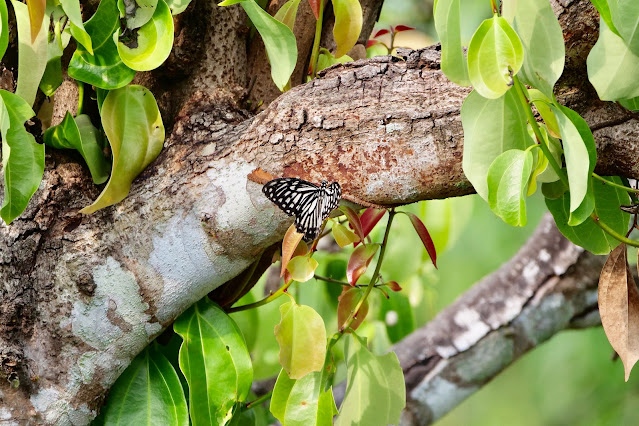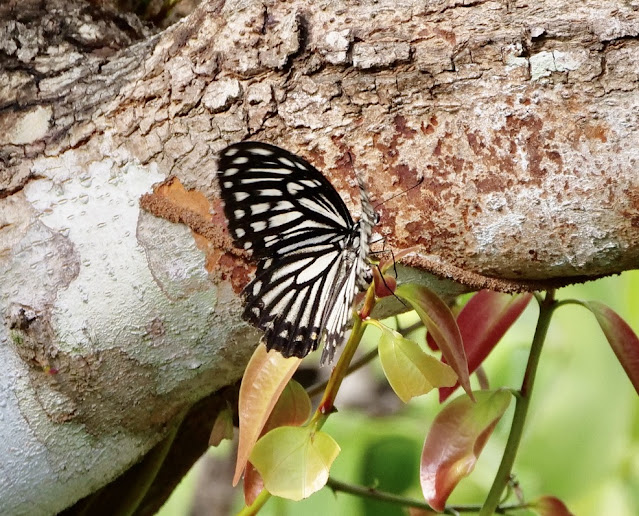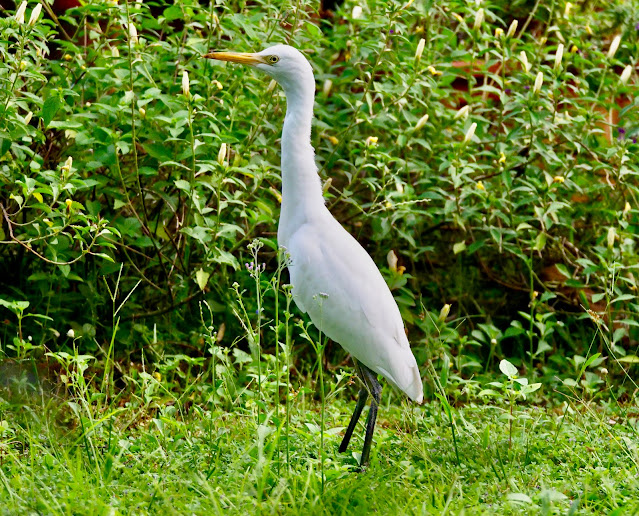I noticed that the flowering plants in our garden do not have the frequent visitors of Butterflies in our garden.
I happened to see a few of them in large trees hovering over their leaves or stem. This change in their habitat disturbed me.
It was while taking to the owner of the plant nursery in our village I got a clue about the changes in the behaviour. Following a few months after fertilising the plants the butterflies might stay away from some flowers, which might an altered taste for the honey. Some chemicals in the fertilisers do appear in minute quantity in the honey and alter the taste of the flowers.
In gardens where the honey bees are reared, there is s protocol of what kind of fertilisers can be used in order to keep the honey compatible with the bee behaviour. It might be true of butterflies as well.
No wonder, the ecologists and environmentalists often speak from an informed position, to educate us about the way humans are to take care of our environment, to foster life of all other species around us.
I get this thought reinforced in my thinking as I see Egrets, two or three, in our garden in the morning and evening, in the recent weeks, as their normal habitat in the paddy fields, was interrupted with a rubber nursery under cultivation, where insecticides are used to spray on the plants and all around. The stream beside which flew in to the fields was a fertile ground for crabs, fish, and frogs. Now the stream too is contaminated with chemical pesticides.
Life for all, is a slogan that earth lovers have coined!
The earth is a garden for humans and all other species. The earth when gets exploited for commercial purpose unmindfully of the health risk to all species of life, life itself is in danger.
In the book, Lifespan, Why we Age and- Why We Don't Have To, Dr David A. Sinclair proposes that 'Aging is a disease and that disease is treatable'. The Sydney morning herald commented this book: 'Sinclair's work on slowing the aging process and even reversing some aspects of it, could lead to the most significant set of medical breakthroughs since the discovery of antibiotics nearly a century ago'.
The book is a summary of life time work where genetic determinants and environmental factors acting upon them are well explored to give us a new horizon in our thinking about how we are to live. He proposes that more would live beyond 100 years and some would reach 120 years in the near future.
The health of human species and the health of our environment are two critical issues that receive considerable attention in the international fora.
I get a glimpse of the truth about the need of a healthy environment, essential for wellness of all, from the changes in the behaviour of even butterflies and Egrets !
M.C.Mathew(text and photo)






No comments:
Post a Comment